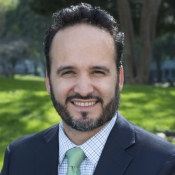 Like rainstorms during a drought, signs that the economy is improving bring greater optimism about the future. In 2016 California is again looking at a year of increased state revenues and a growing budget reserve, something almost unthinkable just 8 years ago. At this time last year, when we faced a similar scenario we noted that the Governor and state lawmakers had a critical opportunity to re-invest in California’s future by reversing the terrible legacy of deep cuts to public education, and investing in climate programs that reduce carbon emissions while lifting people out of poverty. Unfortunately, back then the Governor’s January budget proposal fell short in both respects. His recent 2016-17 budget proposal, although it includes some welcomed investments, is disappointingly more of the same.
Like rainstorms during a drought, signs that the economy is improving bring greater optimism about the future. In 2016 California is again looking at a year of increased state revenues and a growing budget reserve, something almost unthinkable just 8 years ago. At this time last year, when we faced a similar scenario we noted that the Governor and state lawmakers had a critical opportunity to re-invest in California’s future by reversing the terrible legacy of deep cuts to public education, and investing in climate programs that reduce carbon emissions while lifting people out of poverty. Unfortunately, back then the Governor’s January budget proposal fell short in both respects. His recent 2016-17 budget proposal, although it includes some welcomed investments, is disappointingly more of the same.
Here are just two reasons:
In education, the Governor’s budget proposes some $2.8 billion in additional General Fund support for K-12 schools, an increase of 5.4 percent over last year. However, this increase—which is legally mandated by Proposition 98– is neither cause for celebration nor for moving on to other budget priorities. Our public schools will remain among the worst funded (46th or 42nd according to two recent reports) in the nation even if this budget is adopted, and our kids continue will continue to suffer for it.
The Governor’s budget and the new Local Control Funding Formula (LCFF) only promise to keep us on track to return by 2021 to 2008 spending levels. To put that into perspective, consider that in 2008:
- California ranked 44th in per pupil spending
- Less than half of all K-12 students reached proficiency in English and Language Arts, Math, Science, History and Social Science
- One third of high school students failed to graduate
- 1 in 4 graduates failed to satisfy course requirements to even apply to a 4-year state university
- Educational outcomes were even worse for Latino and African American students
Surely keeping funding levels at the bottom of the barrel nationally cannot be the Governor’s long-term strategy to turn our schools around. He’s setting the bar way too low for our kids. So we must raise it.
On climate investments, the Governor leaves us equally perplexed. You would be hard pressed to find another sitting U.S. governor who is a more vocal leader than him on this issue. Flanked by both Senate Pro Tem Kevin de León, a known champion for climate investments in disadvantaged communities, and strong public support for climate solutions, Gov. Brown couldn’t have better political conditions for continuing to push the envelope on this issue. So why does his budget leave us so underwhelmed?
Well for one, he’s once again lowballing the climate revenues projected from this year’s cap-and-trade auctions. While prudent on its face, this better-safe-than-sorry approach to estimating revenues ended up leaving hundreds of millions of dollars unspent last year despite the high demand of ready-to-go climate projects that would have reduced pollution and crated green jobs if funded. Those unspent dollars, for instance, could have been used to provide all K-12 students free transit passes – a strategy that not only curtails carbon emissions from our congested morning commutes, but helps incentivize the next generation of public transit riders.
Another objectionable proposal is the Governor’s $100 million allocation for so-called “low-carbon roads,” e.g. road repaving and street light synchronization intended to increase traffic flow. The California Air Resources Board has said such projects may lead to more driving and therefore increase not decrease greenhouse gases. By law cap and trade auction revenues must be invested in projects that reduce emissions. Funding road projects with these dollars is not only legally questionable, it takes California in the wrong direction.
As economic conditions improve, the Governor and state lawmakers once again have a critical opportunity to reverse some of the harm that vulnerable Californians endured during the recession and make bold investments to safeguard their future. We urge the Governor and the Legislature to set a much higher bar in the upcoming budget negotiations.
We welcome your views. Let Guillermo know what you think.

